Viktor & Rolf channels coronavirus-related mentalities for latest fashion collection
Viktor & Rolf presents a high-fashion take on coronavirus with its Autumn/Winter 2020 collection, featuring silky nightgowns emblazoned with emojis and "unapproachable" coats covered in spikes and tubes.
The collection, titled Change, comprises three mini-wardrobes that all feature three looks including a nightgown, a dressing gown, and a coat.
Each wardrobe has been designed to illustrate a different state of mind related to "these extraordinary times of change" occurring as a result of the coronavirus pandemic.
The first represents a sombre mood, while the second illustrates conflicted emotions and the third symbolises love.
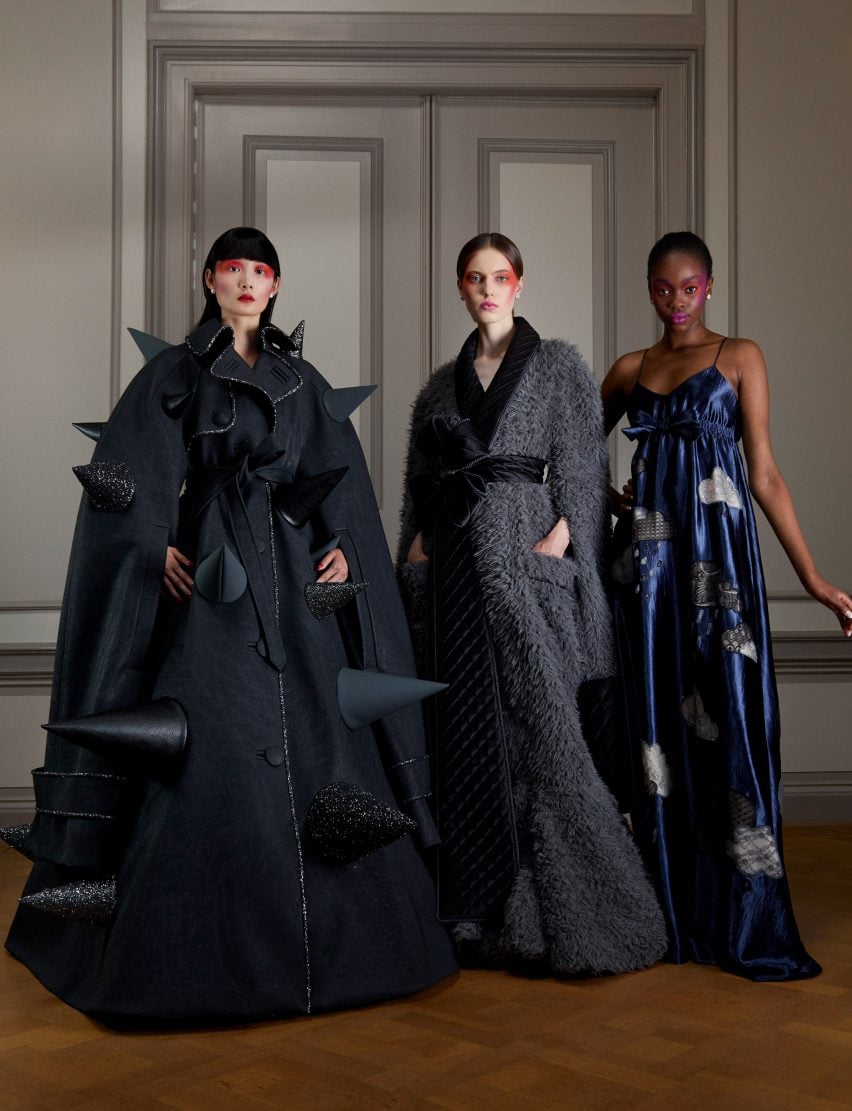
The first collection of outfits – described by the duo as a "panoply of gloom" – aims to emulate a feeling of sadness and anger, and features a navy satin nightgown embroidered with dark raincloud motifs made from lace.
This is presented alongside a flared, grey chenille dressing gown that takes design cues from "masculine" robes, adorned with a quilted bow tied around the waist and elongated sleeves with wide cuffs.
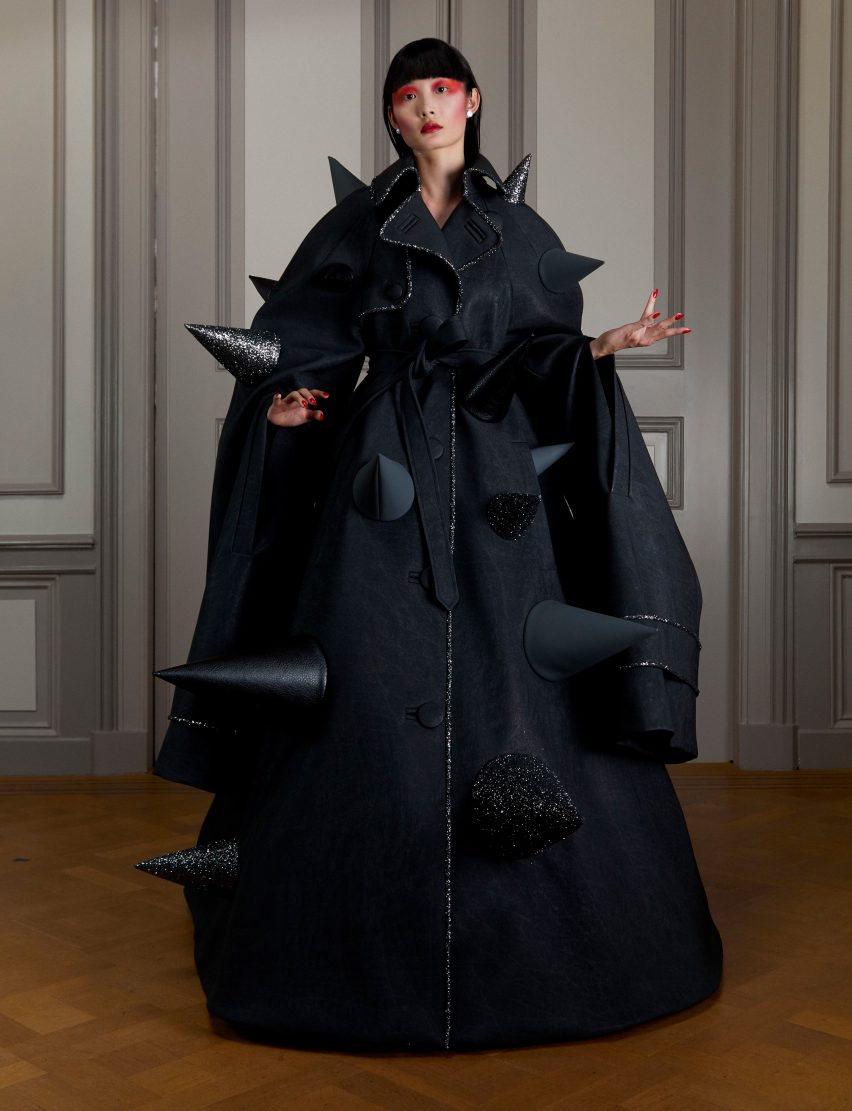
The third look is a black, voluminous coat made from faux leather, which is punctuated with spiky, fabric cones – some leather, some sheen and others glittery – that both "impress and make you feel safe".
"There is a lot to feel angry about and this garment will communicate exactly that," said the Dutch fashion house, which is made up of Viktor Horsting and Rolf Snoeren, who founded it in 1993.

The second wardrobe represents the "conflicting emotions" that many are experiencing during the pandemic. The glossy pink polka-dot nightgown is "manically" covered with emojis displaying different feelings, from angry and scared expressions to a smiling face wearing a halo.
Its one-shouldered style is also designed to convey confusion – marking the dress as "hesitant between covered and nude".
The dressing gown look for this part of the collection is made from soft, plush fabric featuring asymmetric sashes and bows down the left sleeve that "frantically entangle one of the arms", finished with canary-yellow quilted cuffs.
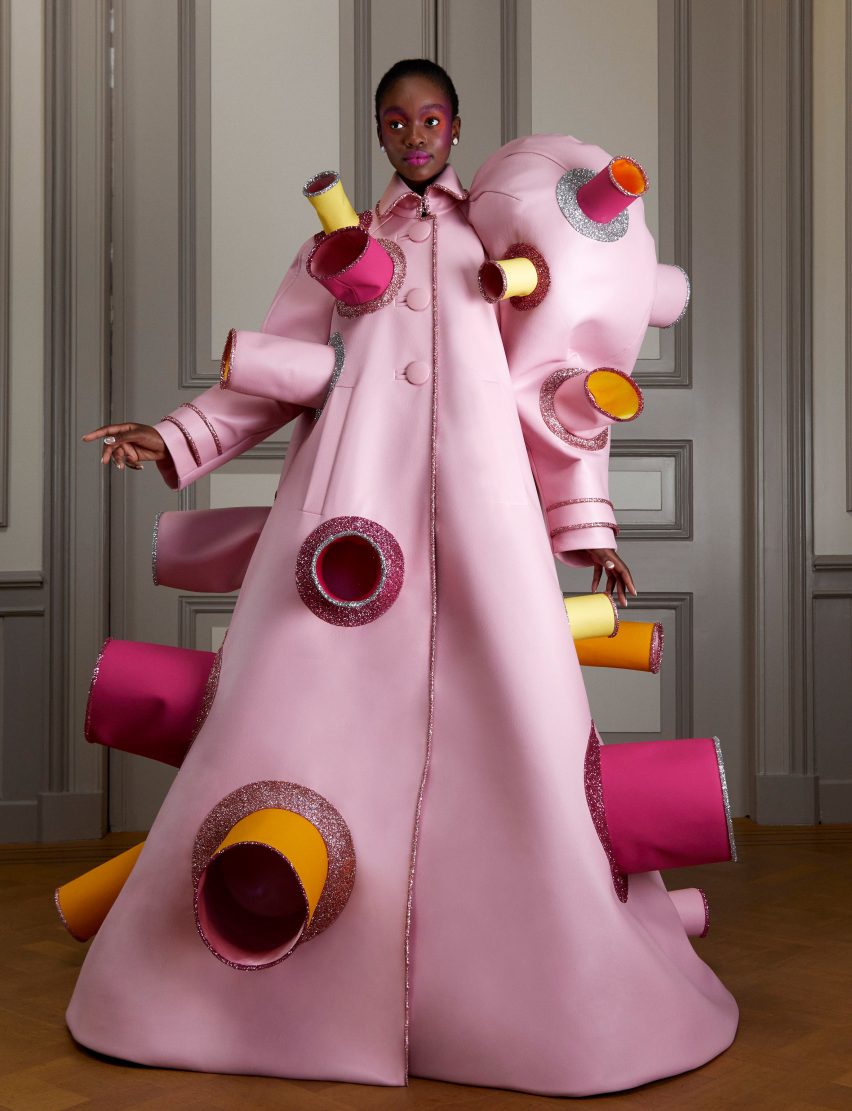
Glittery tubes protrude from the maximalist, candy-coloured coat made from faux leather, which has one extra puffy sleeve. Viktor & Rolf describes this look as "at the same time unapproachable as well as attractive".
"Sometimes up, then again down, social media's perplexing hypnosis put our stability at risk," said the designers. "Luring us from the banal to plain horror and back again, they leave us bewildered."
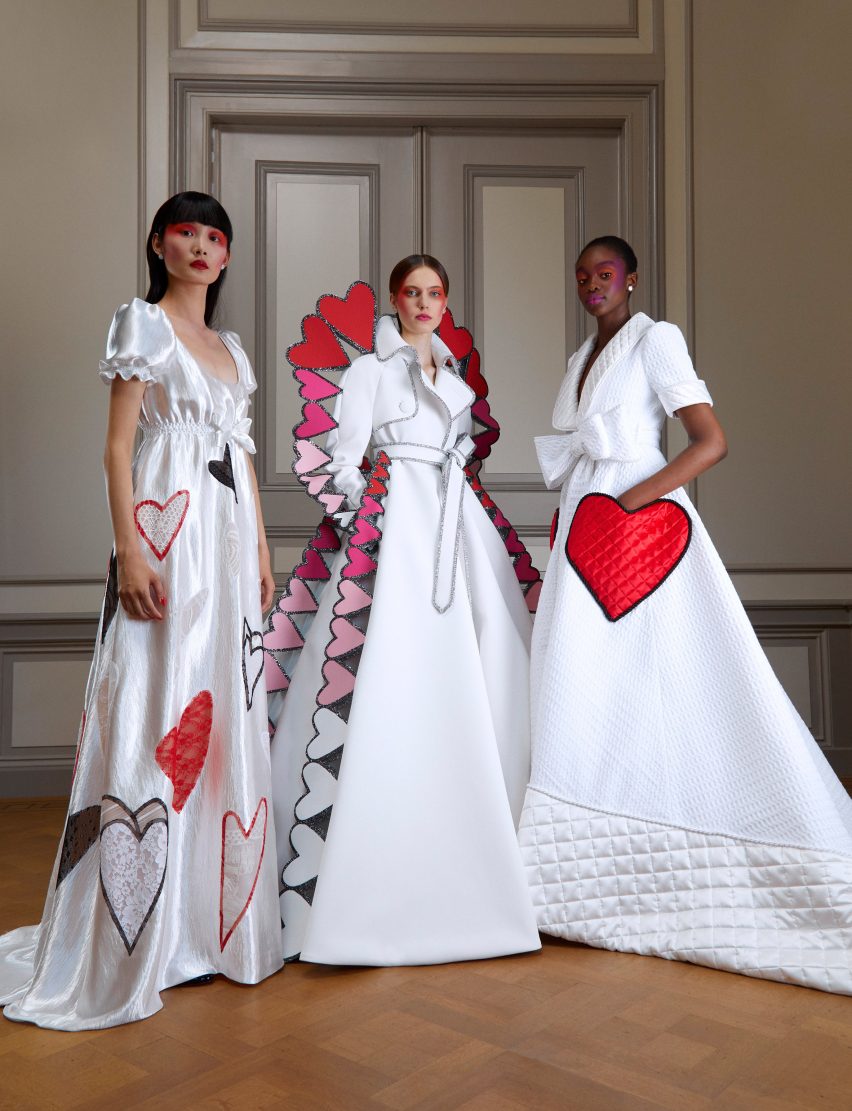
The third series of outfits aim to "radiate love", starting with the floor-length white satin négligée embroidered with red, black and white lace hearts. These are designed to turn the "melancholy" of the first capsule collection into "serenity".
The second bathrobe look is designed to "impart a feeling of royalty", and has a fitted bodice that billows down into an A-line skirt, featuring two heart-shaped pockets in quilted red satin.
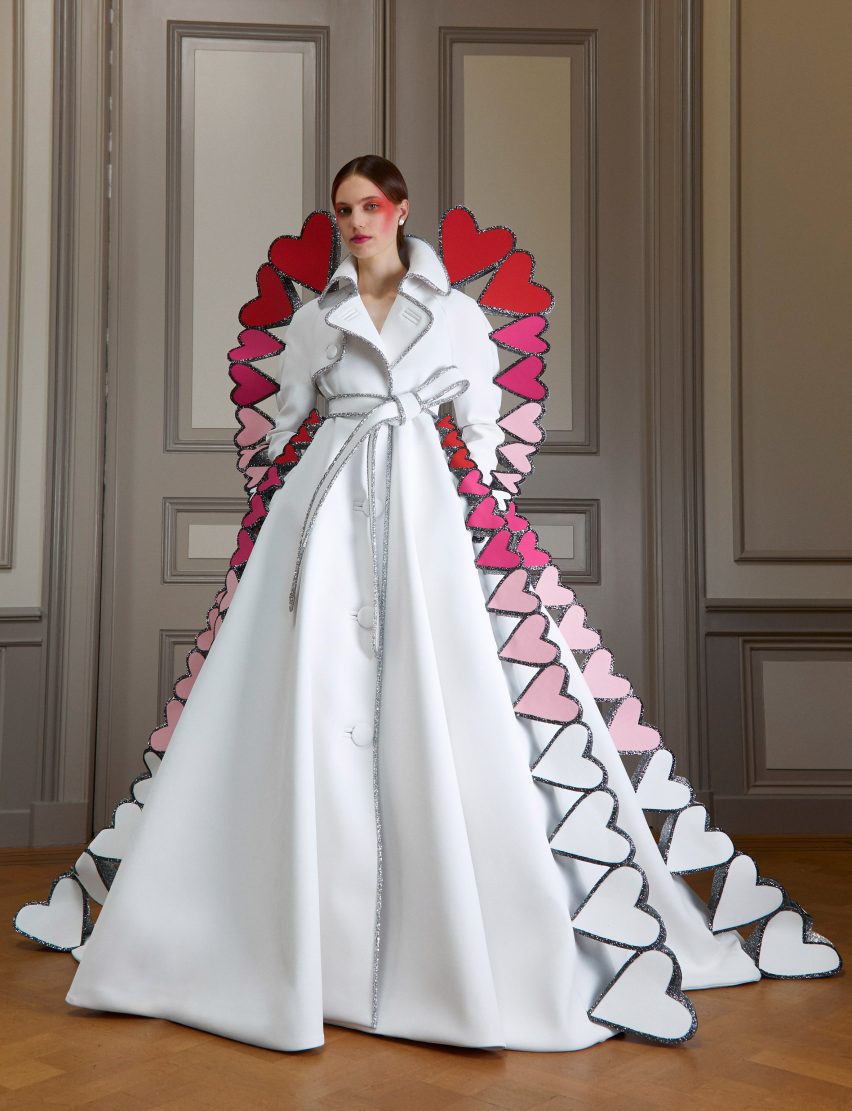
The final coat in the third collection is lined with rows of heart symbols in shades of red and pink, each outlined in glitter. Designed to represent unity, the coat illustrates that "we all deserve to be loved, regardless of age, colour, gender, race, religion or sexuality".
"The world around us is changing rapidly," said the duo. "Whether apocalypse or new spiritual era, you will continue to be able to step into the singular universe of spectacular beauty, unexpected elegance and spiritual glamour of Viktor & Rolf."
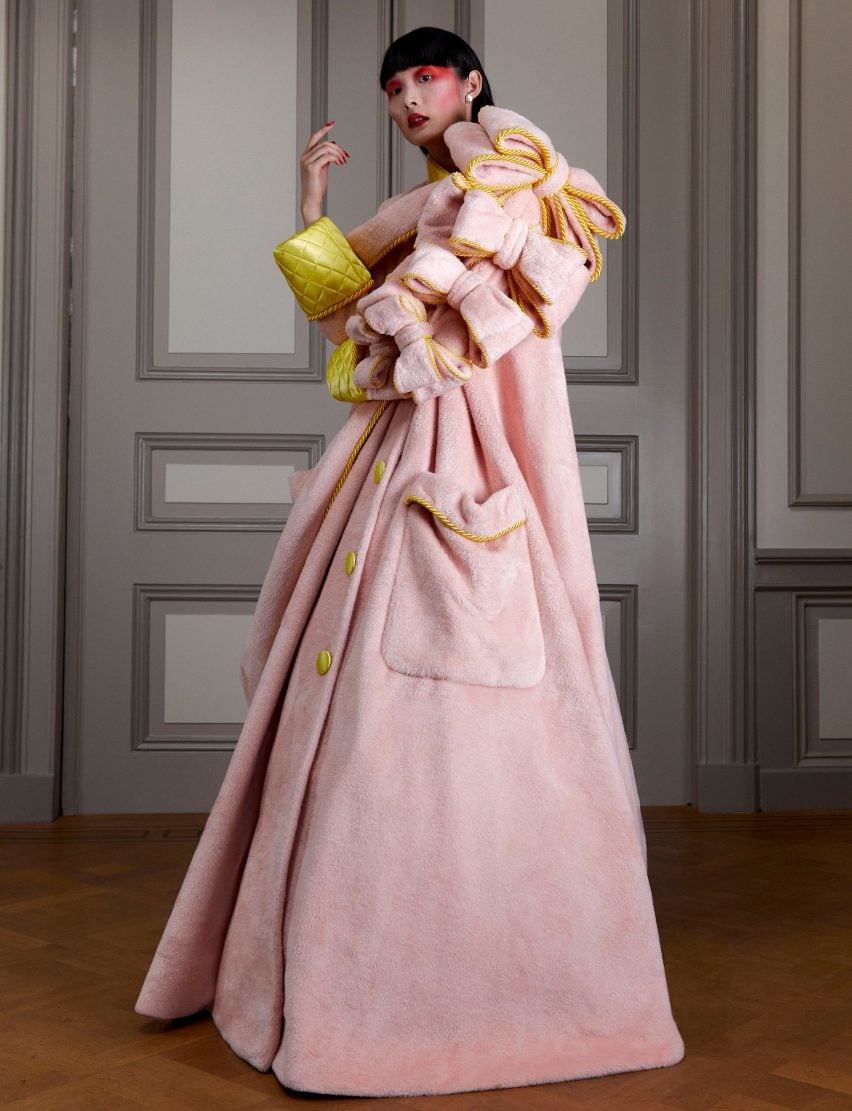
The Change A/W 2020 collection was debuted in a film directed by Marijke Aerden and narrated by singer MIKA, who reads the words of Horsting and Snoeren while the models parade each of the looks in a room at the Waldorf Astoria in Amsterdam.
Previously, the design duo created a fashion collection using five miles of tulle, which formed puffy, oversized dresses emblazoned with kitsch slogans like "Give a damn" and "Sorry I'm late, I didn't want to come".
Called the Fashion Statements collection, it was presented as part of Paris' haute couture shows in January 2019 and references the type of language used on social media or found on souvenir T-shirts.